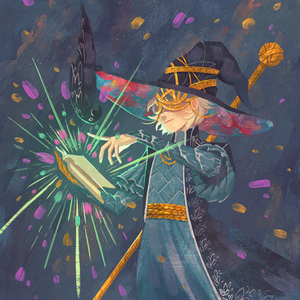White—the color of hospital walls and silence. Gowns. Pale pills and Chance’s skin, two years after he stopped seeing the outside world. White—the dreaded shade tainted everything he touched; Chance wished he could be rid of it.
Bright lights blared down at him from the ceiling that towered over the silence-filled room. He glanced back down at the modest sheet of paper peppered with scribbles, held between his nimble fingers.
It had been an exercise one the nurses had given him earlier this week. They’d claimed it was good for morale. A bucket list. Yet, Chance had not found a single thing he’d wanted to do. So, instead, he had written: Learn To Be Happy—as if he’d believed for the instance of second, that he would ever come to know what that truly meant.
Chance stared upward, away from his wish written in plain ink. He sighed, his pupils were dilated, as the roof’s pale glint burned lessons into his eyes he would never forget. In this quiet night, Chance felt no pain for once. The thought crossed his mind that it was thanks to all the medication they’d fed him today, but he soon pushed it away; even if it was only just pretend, he yearned to be normal for an hour. A few minutes.
He ripped the paper in two, and chucked it into the bin that laid next to the bedside table which stood by his bed. He thought it strange, really, that he still cared enough to feign ignorance. Chance had stopped believing in things considered precious long ago—dreams and fairy-tales were not real. It was safer to know whatever he’d lose would never be a big loss, if it was never his in the first place: everything surrounding him was temporary, a lie, and it had to stay that way. It had to, if he wanted to leave this Earth with peace of mind.
“Chance?” the familiar, soft voice of the nurse broke his train of thought.
Chance held out his frail arm. It was still covered in bruises and little red dots that created constellations, constant reminders of his malady and the stars. “Just take it,” he said.
The nurse laughed, as if Chance had told her the funniest joke on this planet. "No, that’s not it!" She waved his powerless limb away. “I simply wanted to let you know, you’ll be sharing your room from now on! If you—”
Chance cut her off. “For how long?” he asked, with a tilt of his head.
She hummed, then glanced up to an invisible sky, like people lost in thought often do. A grin appeared across her lips. “I don’t know,” she said. “But! It’ll be a nice change of pace for you to see a new face! I heard he’s about the same age as you, and actually…” She paused. In this moment, Chance thought that, perhaps, he should have bothered to remember her name. Yet, it had been so many years, why start now?
“Actually…” The nurse cleared her throat. “I might have pitched in to request if it was possible to place him with you.” Her laugh was meek, and the nail she used to scratch her face an ugly green.
Chance furrowed his brows. “Why would you do that?” His question was met with nothing, the sound of his ears ringing as the nurse’s footsteps faded and soon became a thing of the past, swallowed by the present. Their conversation was replaced by the screeching of wheels that carried a chair. Chance didn’t want to see it—another person, another short-lived fix; so he looked away, back to the window, to the courtyard illuminated by round lights resembling tiny, floating suns. The wheels gyrated closer. They came to a halt. Sighs followed the shifting of sneakers, explanations from nurses and doctors directed towards whomever it was that would be staying, and then leaving. Sheets were removed, replaced. Someone landed with a loud, hard thud on the very bed that stood opposite of Chance’s.
A young man’s voice thanked the nurse. His tone was rough, yet mellow, still. It made Chance want to turn around.
He didn’t.
He shut his eyes tight, and let his head fall against a pillow that was never quite right.
Author's note: Hello, fellow readers, I hope you're all doing well! I will be releasing White; and the colors you showed me as an official published novel this summer! To celebrate, I will be serializing the new updated 2023 version of the story: if you'd like to get notified for when pre-orders drop, don't forget to subscribe to my newsletter (the link is in the description below), and if you'd like to support me and help me keep writing these stories, please consider pledging on Patreon (the link is also in the description below), thank you so much, I hope you will enjoy the new updated version of White; and the colors you showed me! :)













Comments (1)
See all